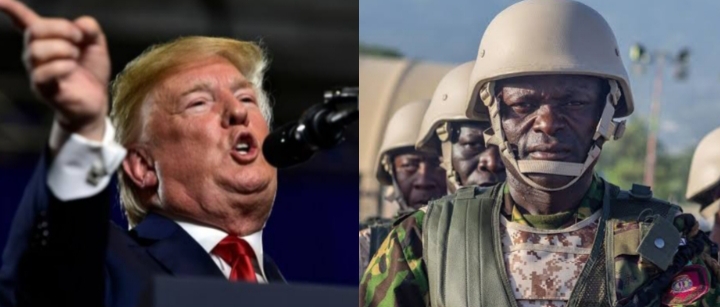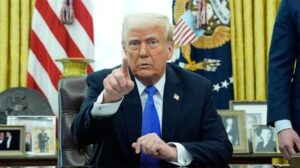Kenya’s leadership in the United Nations-backed Multinational Security Support mission in Haiti faces uncertainty as shifting policies in Washington threaten to remove Nairobi from its central role.
Barely a year after Kenyan police officers assumed command of the mission, the Trump administration is pursuing sweeping changes that could see control handed to another country.
This development signals a wider geopolitical shakeup, raising questions about Kenya’s global standing and the future of U.S. aid and security cooperation with Nairobi.
For Haiti, the changes highlight Washington’s desperation to rescue a mission that has been struggling against entrenched gang violence.
The Trump administration has started drafting new plans to overhaul the Haiti Mission, presenting them as a way to inject momentum into the fight against heavily armed gangs.
These proposals involve doubling the number of foreign troops under the MSS framework and exploring a new chain of command that would strip Kenya of its lead role.
Speaking at a meeting of the Organization of American States, U.S. Deputy Chief of Mission Kimberly Penland confirmed that Washington is preparing a resolution for the United Nations Security Council.
This resolution seeks greater resources, including the use of peacekeeping funds, to sustain Haiti’s fragile security operations.
At the same time, it opens the door to a leadership shift that could sideline Kenya.Penland was careful to acknowledge Nairobi’s efforts, commending Kenya’s dedication and leadership, but her remarks also left no doubt that structural changes are on the way.
She made it clear that if the Security Council adopts the proposed model, Washington would seek broader regional participation to take over strategic leadership of the force.
This represents a major reversal from the previous Biden administration, which had hailed Kenya’s assumption of leadership as a landmark achievement for Nairobi’s growing global security role.
Analysts warn that the proposed restructuring could undermine Kenya’s influence and prompt a broader reassessment of U.S.-Kenya relations.
The uncertainty has already raised concerns about Kenya’s status as a Major Non-NATO Ally, a designation that has been central to its security cooperation with Washington.
Aid flows could also be impacted, especially at a time when Nairobi has leaned heavily on its international partnerships to bolster its global image.
For President William Ruto, the Haiti Mission has been more than a military deployment. It has served as a diplomatic showcase to prove Kenya’s capacity to lead international security operations.
A diminished role in Haiti would weaken that narrative and force Nairobi to defend its position on the international stage.U.S. officials insist the relationship with Kenya remains solid despite these shifts.
James Hagengruber, spokesperson for the U.S. Embassy in Nairobi, pointed to recent high-level engagements involving President Ruto, American officials, and Japan as proof that ties are intact.
He downplayed claims of strained relations, describing the changes as policy matters that can come and go. Still, the optics of Washington moving to strip Kenya of leadership are difficult to ignore.
It risks being interpreted as a public vote of no confidence, exposing how quickly priorities can change between U.S. administrations.
The bigger challenge for Kenya will be navigating these shifting alliances while holding onto its ambition of being seen as a global player.
Trump’s move illustrates how fragile international prestige can be, especially when it rests on the decisions of foreign powers. For Haiti, the restructuring may offer a fresh chance to regain momentum against gangs, but for Kenya, it is a reminder that hard-won leadership roles can vanish overnight depending on the winds of Washington’s foreign policy.




















Add Comment